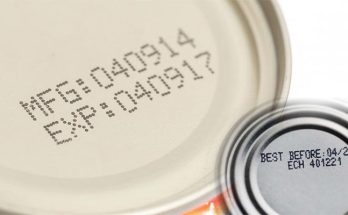Turning your passion for cooking into a home-based food business is an exciting venture. You get to share your culinary talents with your community while enjoying the perks of working from home. But before you embark on the new journey, there’s an important aspect to tackle. Yes, food safety.
In Canada, maintaining high food safety standards isn’t just good practice; it’s the law. Whether you’re selling homemade bread, catering events, or bottling sauces, you’ll need to meet specific regulations. At the heart of these requirements is obtaining a food handlers certificate. This document isn’t just a piece of paper—it’s your assurance to customers that their health is your priority.
Here’s what you need to know to kick-start your food business on the right note.
Why Do You Need a Food Handlers Certificate?
In Canada, foodborne illnesses affect thousands of people every year. To minimize these risks, provinces require food handlers to understand proper food safety practices. A food handlers certificate cost varies by province and the training provider, but it’s a small price to pay for ensuring your business is safe and compliant.
This certification shows that you’re knowledgeable about key safety practices, such as proper food storage, temperature controls, and hygiene protocols. In provinces like British Columbia and Alberta, it’s mandatory for at least one person in a food business to hold this certificate. For home-based entrepreneurs, that person is you.
If you’re in British Columbia, you’ve likely come across FOODSAFE LEVEL 1. This program is widely recognized and focuses on foundational food safety concepts. The course is available online, making it accessible for busy entrepreneurs, and covers various topics, including preventing cross-contamination, handling food allergens responsibly, and understanding cleaning and sanitizing standards. Completing this training not only helps you meet regulatory requirements but also equips you with practical skills to operate safely and confidently.
WHMIS Certificate: Do You Need One?
While food safety is the primary concern, handling cleaning agents and chemicals in your kitchen brings another layer of responsibility. This is where a whmis certificate comes in handy.
WHMIS (Workplace Hazardous Materials Information System) training is not mandatory for all food businesses, but it’s highly recommended. It teaches you how to store, label, and use cleaning chemicals safely—crucial for maintaining a clean and hazard-free kitchen. If you’re searching for “whmis certificate near me,” online courses make it easy to get certified from the comfort of your home.
Steps to Start Your Food Business Legally
Starting a food business involves more than just certification. Here’s a checklist to ensure you’re set up for success:
- Understand Provincial Requirements
Each province has its own rules for home-based food businesses. For instance, Ontario allows certain low-risk foods like jams and baked goods to be sold without extensive permits, while Alberta may have stricter requirements. Check your local health authority’s guidelines.
- Get Certified
Ensure you have your food handlers certificate and, if applicable, a WHMIS certificate. These credentials are often the first thing health inspectors look for.
- Register Your Business
Even home-based operations need to be registered. This process varies by province but typically involves declaring your business name and address to your municipal government.
- Kitchen Inspection
In most cases, your kitchen will need to pass a health inspection. This ensures your workspace meets sanitation and food preparation standards.
- Label Your Products Properly
Canada has strict labelling laws. Your food items must include an ingredient list, allergen warnings, and expiry dates. This protects customers and builds trust in your brand.
- Secure Proper Insurance
Operating a food business from home comes with risks. Food product liability insurance can protect you in case of unexpected incidents, such as foodborne illnesses or property damage caused by your products. This type of insurance is often a prerequisite for selling at farmers’ markets or partnering with retailers.
- Stay Updated on Regulations
Food safety laws and requirements can change over time. Staying informed ensures your business remains compliant. Consider joining local food business associations or subscribing to updates from your health department.
Building Trust with Your Customers
Safety certifications are more than regulatory requirements—they’re a tool for building customer trust. When you display your certificates prominently on your website or packaging, you send a clear message: “This business takes your health seriously.”
Today’s consumers are more informed than ever and value transparency. Taking extra steps like training in WHMIS and obtaining a food handlers certificate can set your business apart from competitors.
Final Thoughts
Starting a home-based food business in Canada is a rewarding experience, but it comes with responsibilities. By getting certified, following provincial guidelines, and maintaining top-notch safety standards, you’ll be well on your way to turning your culinary passion into a thriving enterprise.
For more information on getting your food safe level 1 certificate, research more. Whether you’re new to the industry or looking to expand your knowledge, their resources can help you stay compliant and confident in your business.




